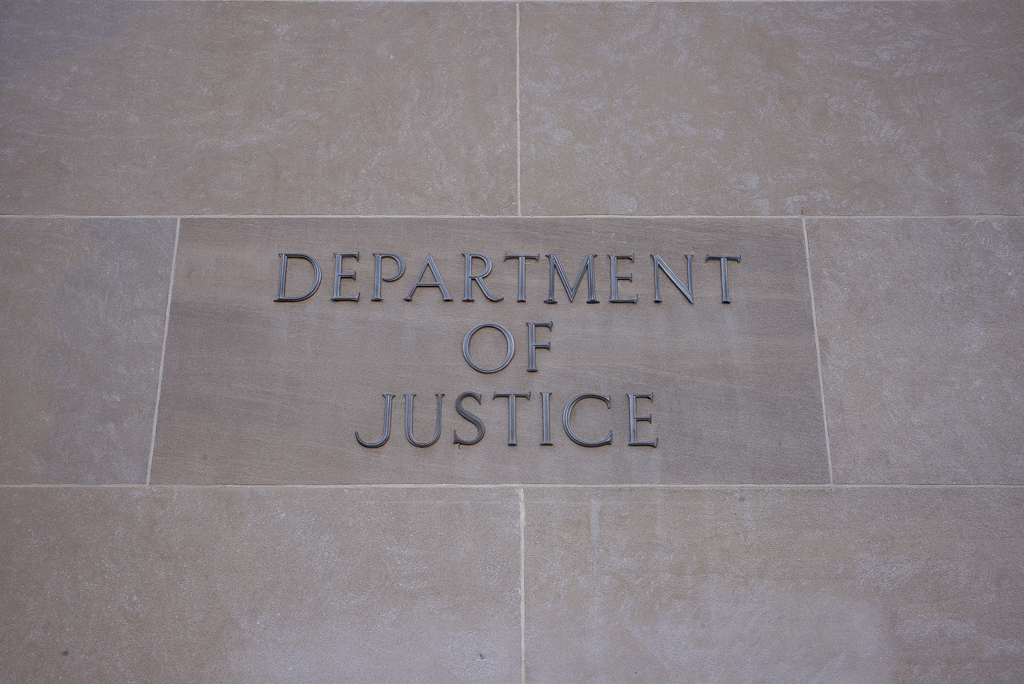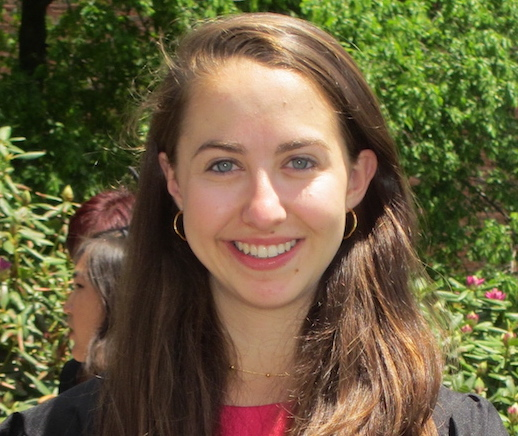International Terrorism Prosecutions: 2018 Wrap-Up
In the past few months, prosecutors have tried, juries have convicted, and judges have sentenced defendants from the height of the Islamic State’s power in 2014–15. Meanwhile, American law enforcement continues to prosecute individuals involved in terrorist-related crimes in the United States, even as new challenges—like prosecuting foreign Islamic State fighters—arise.

Published by The Lawfare Institute
in Cooperation With

In the past few months, prosecutors have tried, juries have convicted, and judges have sentenced defendants from the height of the Islamic State’s power in 2014–15. Meanwhile, American law enforcement continues to prosecute individuals involved in terrorist-related crimes in the United States, even as new challenges—like prosecuting foreign Islamic State fighters—arise. The material support provided to designated foreign terrorist organizations by these subjects has varied widely, from distributing propaganda to waging attacks in the United States to attempting to travel to join the Islamic State or helping others travel to providing funding. And although terrorism prosecutions involving individuals affiliated with the Islamic State have dominated the headlines, other defendants associated with al-Qaeda affiliates and other groups have recently been tried, convicted and sentenced.
Islamic State
Material support charges for travel
Law enforcement continues to arrest individuals attempting to travel to join the Islamic State. On Oct. 25, Naser Almadaoji, a 19-year-old from Columbus, Ohio, was arrested for trying to travel to join an Islamic State-affiliated group in Afghanistan. According to the complaint, in February 2018, Almadaoji had traveled to Egypt and Jordan, after which he told an individual on the internet that he had tried to join a terrorist group while overseas. He also translated Islamic State propaganda from Arabic into English, according to the charging document.
Three individuals recently pleaded guilty in separate cases to material support charges for attempting to travel in order to aid terrorist groups. On Oct. 25, Jason Ludke, a 37-year-old from Milwaukee pleaded guilty in the U.S. District Court for the Eastern District of Wisconsin to conspiring to provide material support to the Islamic State. As Nora Ellingsen explained in October 2016, at the time of Ludke’s arrest, he was traveling to Mexico as part of his plan to join the Islamic State when he was apprehended by law enforcement along with a co-conspirator, Yosvany Padilla-Conde (whose case is still ongoing). Ludke was on probation for child sexual assault and threatening a federal judge, and he had removed an ankle location monitoring device before leaving Wisconsin. He has a sentencing hearing on Jan. 25.
On Nov. 14, Adam Raishani, a 32-year-old from the Bronx, New York, pleaded guilty in the Southern District of New York to attempt and conspiracy material support charges. He was arrested in June 2017 trying to board a flight to Turkey. In his guilty plea, Raishani admitted to helping an unnamed individual join the Islamic State. During meetings with undercover FBI agents, the complaint says, he stated his intention to join the other individual with the Islamic State in Syria and viewed violent propaganda videos. He’ll be sentenced on March 8.
Finally, on Nov. 26, Zoobia Shahnaz, a 27-year-old from Long Island pled guilty to providing material support to the Islamic State. She viewed Islamic State websites and tried to travel to Syria, but was questioned by law enforcement at JFK Airport before boarding a flight with a layover in Turkey. Her case is more complicated, however, because she admitted to defrauding financial institutions and fraudulent use of credit cards, which she used to buy cryptocurrencies, and transferred money to fronts for the Islamic State in China, Pakistan, and Turkey (as described in an indictment). Relatively few women support the Islamic State; for example, according to the International Centre for the Study of Radicalisation, about 13 percent of travelers from Western Europe to join the Islamic State were women, and in the U.S., there were only around 25 cases between 2011 and 2016. The case is also remarkable for Shahnaz’s use of cryptocurrency to support terrorism. Although there are anecdotal instances of the use of cryptocurrency by terrorists, sustained use of the technology has yet to emerge.
Additionally, one defendant was convicted and another was sentenced for attempting to travel to join the Islamic State. On December 6, Laith Waleed Alebbini was convicted of attempting and conspiring to provide material support to the Islamic State in the Southern District of Ohio. As Nora Ellingsen noted, he was arrested in the Cincinnati airport with a ticket to Jordan with a layover in Turkey, where he intended to skip his connecting flight and instead travel to Syria to fight for the Islamic State. He has a sentencing hearing scheduled on March 8 and is likely to be deported after serving his sentence. Ahmed Mohammed El Gammal, 48 years old, was sentenced to 12 years in prison on Dec. 18 by Judge Ramos in the Southern District of New York for providing material support to the Islamic State from at least April 2014 until November 2015. Bobby Chesney discussed his arrest in the United States in 2015 for material support and military training. El Gammal had worked with another Islamic State supporter (who CNN reported has since died in combat) to plan for them both to travel and receive military training overseas, and was convicted in January 2017.
Another defendant was indicted after leaving the United States and arriving in the Middle East. In September 2018, Rasheedul Mowla, a 22-year-old from Brooklyn was indicted for attempting and conspiring to provide material support to the Islamic State after being detained in a Middle Eastern country in June 2017 for trying to cross the border into Syria. Like his co-conspirator, Parveg Ahmed, Mowla was deported back to the United States, arrested upon arrival in August 2017, and later confessed to trying to join the caliphate.
Non-travel material support charges
Several individuals also have ongoing material support cases unrelated to travel. One subject, Ashraf Al Safoo, was charged with providing editorial and propaganda support. Al Safoo, a 34-year-old resident of Chicago, was arrested on Oct. 19 for conspiring to provide material support to the Islamic State. Al Safoo was the head writer of an online collective called the Khattab Media Foundation, which spreads Islamic State propaganda. Al Safoo had on multiple occasions re-posted a statement swearing allegiance to the group. The complaint details the technological operation at work to maintain the social media organization.
Four subjects were involved with planned attacks in the United States inspired by or in support of the Islamic State. The first, Damon Joseph, a 21-year-old from Holland, Ohio, was arrested on Dec. 10 for attempting to provide material support to the group by planning an Islamic State inspired attack on Jewish sites of worship. According to the affidavit, FBI agents were tracking his online activity after Joseph posted Islamic State content online. Federal law enforcement moved to arrest Joseph when he acquired two semiautomatic rifles from an undercover FBI agent after telling the agent in detail about his plan to attack a synagogue.
The second case is that of Akayed Ullah. A 28-year-old from Brooklyn, Ullah was convicted after a one-week trial on Nov. 6 on six counts—including a material support charge, a substantive and attempt charge for use of a weapon of mass destruction, a substantive and attempt charge for bombing a place of public use, one count of property destruction through fire or explosives, terrorist attack against a mass transportation system, and using a destructive device in furtherance of a crime of violence—all relating to his detonation of a bomb at Port Authority Bus Terminal in New York in December 2017. Ullah was injured when his pipe bomb went off, and at least one other person near him was also hurt. Law enforcement had video of the bomb and found evidence in his apartment. Ullah confessed while recovering from his injuries. The defense did not contest that he set off a bomb, but made a substantive defense that it was a suicide attempt. Ullah is scheduled for sentencing on April 5.
On Sept. 5, Alexander Ciccolo, a 26-year-old from Boston, was sentenced to 20 years in Massachusetts federal district court for attempting to provide material support to the Islamic State by planning an attack on a state university, as well as one count of attempting to use weapons of mass destruction, one count of being a convicted felon in possession of firearms, and one count of assaulting a nurse with a deadly weapon during a jail intake process. Ciccolo was arrested in July 2015 after he had acquired four firearms from a cooperating witness who also recorded conversations in which Ciccolo talked about building pipe bombs and a pressure-cooker bomb (modeled on the bombs used by the 2013 Boston Marathon bombers, according to the New York Times). Ciccolo’s father—a Boston police captain—initially notified the FBI that Ciccolo had expressed a desire to fight for the Islamic State.
Most recently, on Dec. 19, 2018, Abdulrahman El Bahnasawy, a 20-year-old from Missausagua, Canada, was sentenced to 40 years in the Southern District of New York for plotting to carry out attacks around New York City during the Islamic holy month of Ramadan in 2016 in support of the Islamic State. Bahnasawy, working with two co-conspirators, had acquired bomb-making material and a cabin near the city to build the explosive devices and stage the attacks. The FBI arrested Bahnasawy in May 2016 after he traveled to the New York area in preparation for the attacks. His co-conspirators remain in foreign custody in Pakistan and the Philippines pending proceedings for extradition to the United States.
Finally, Ikaika Erik Kang, who was arrested in July 2017, was sentenced to 25 years for providing material support to the Islamic State when the judge accepted a plea agreement on Dec. 4. Kang was a former U.S. Army sergeant who was the first Islamic State supporter arrested in Hawaii. He professed support for the Islamic State, provided classified military documents to undercover FBI agents and lead a two-hour training intended to help an alleged Islamic State member in combat and marksmanship.
Al-Qaeda Affiliates
Over the past three months, three defendants have been charged or found guilty of acts associated with al-Qaeda. On Dec. 14, 2018, Naif Abdulaziz M. Alfallaj, a Saudi citizen and a former resident of Weatherford, Okla., pleaded guilty to one count of visa fraud (for a visa he possessed between 2012 and 2018) and one count of making a false statement to the FBI involving international terrorism. Alfallaj had attended an al-Qaeda training camp in Afghanistan in late 2000, but he lied about it on his visa application in 2011 and during an interview with the FBI in December 2017. Federal law enforcement took Alfallaj into custody on Feb. 5, 2018 and a grand jury indicted him on three counts the next day.
On Nov. 13, a jury in Flint, Mich. found Amor M. Ftouhi, a 51-year-old resident of Montreal, Canada, guilty of conducting an act of terrorism transcending national boundaries, conducting an act of violence at an airport, and interference with airport security while using a dangerous weapon. In June 2017, Ftouhi stabbed a police officer at Bishop International Airport. He later told law enforcement that he was a “soldier of Allah,” that he followed the ideology of al-Qaeda and Osama Bin Laden, and that he had plans to kill other police officers in the airport.
Finally, on Oct. 23, Alaa Mohd Abusaad, a 22-year-old from Alabama, was charged with attempting to provide material support to al-Qaeda and aiding and abetting others. According to the criminal complaint, Abusaad coordinated with a known al-Qaeda “financial facilitator” and instructed an undercover FBI agent on how to send money to fighters working with al-Qaeda through the financial facilitator and avoid detection. Abusaad may face up to 20 years in prison.
Other Foreign Terrorist Organizations
Two defendants were sentenced for providing gear or parts for weapons to terrorist organizations in Iraq and Syria. On Dec. 20, Rasheed Al Jijakli, a Syrian-born naturalized U.S. citizen residing in Walnut, Calif., was sentenced to 46 months in prison for conspiring to export rifle scopes and other tactical gear from the United States to Syria, violating IEEPA and sanctions on Syria. In July 2012, Jijakli traveled to Istanbul with the equipment and provided it to Ahrar Al-Sham and other armed insurgent groups operating in Syria. On Nov. 7, Ahmed Alahmedalabdaloklah, a 41-year-old from Syria, was sentenced to life plus 30 years in prison after being found guilty by a federal jury in March for designing, making, and supplying component parts of improvised explosive devices for members of the 1920 Revolution Brigades—an armed Iraqi insurgent group that opposed the U.S. military presence in Iraq. Alahmedalabdaloklah designed these parts from Iraq between 2005 and 2010 and moved to China in 2011 because of the security situation in Iraq. He was detained in Turkey in 2011 and extradited to the U.S. in August 2014. The case originated from a 2006 raid where U.S. military personnel discovered a huge IED caches in Iraq and found Alahmedalabdaloklah’s fingerprints on several items. This case bears similarities to the prosecution of Muhanad Mahmoud Al Farekh (covered by Nora Ellingsen on Lawfare in October 2017). In March, Farekh was sentenced to 45 years after his fingerprints were discovered on an unexploded IED in an attack on a U.S. base in Afghanistan.
One defendant pleaded guilty to providing material support to a terrorist organization in Syria by traveling to join the organization. On Oct. 31, Aws Mohammed Younis Al-Jayab, a 25-year-old resident of Sacramento, Calif., pled guilty to providing material support to Ansar al-Islam (a designated foreign terrorist organization) and providing a false statement to federal agents in a matter involving international terrorism. In Nov. 2013, Al-Jayab traveled to Syria to fight with Ansar al-Islam. Subsequently, during an interview with USCIS in October 2014 after returning to the United States earlier in the year, he falsely stated that he visited Turkey to see his grandmother and denied supporting any terrorist groups.
Another defendant was sentenced for supporting terrorism in Europe. On Oct. 30, Ali Charaf Damache, a 53-year-old citizen of Algeria and Ireland, was sentenced to 15 years for conspiracy to provide material support to terrorists. Damache was initially indicted in 2011 by the Eastern District of Pennsylvania and then was extradited from Spain in 2017 and pleaded guilty in July 2018. Damache, conspiring with two Americans, coordinated a terrorist cell in Ireland, recruiting and training Europeans and Americans to commit violent jihad. As Nora Ellingsen observed, Damache was the first foreigner brought to the United States to face terrorism charges under the Trump administration.
Finally, in September, a federal judge in the Northern District of California, declared a mistrial in the case of United States v. Shafi. A deadlocked jury was unable to reach a unanimous decision. Adam Shafi, a 25-year-old resident of Fremont, Calif. was arrested in July 2015 before boarding a flight to Istanbul and charged with attempting to provide material support to Jabhat al-Nusra, a designated foreign terrorist organization. But Shafi will not be retried; on Dec. 7, 2018, he pleaded guilty. His sentencing hearing is set for March 21.




.jpg?sfvrsn=d45482bc_5)

